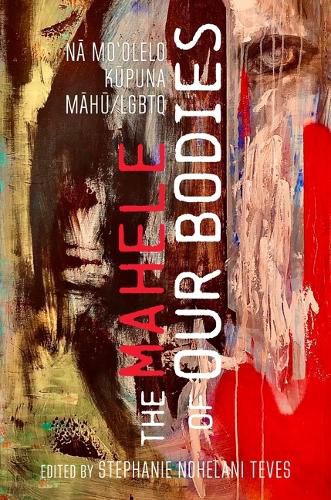Readings Newsletter
Become a Readings Member to make your shopping experience even easier.
Sign in or sign up for free!
You’re not far away from qualifying for FREE standard shipping within Australia
You’ve qualified for FREE standard shipping within Australia
The cart is loading…






"They put up barriers, the same way with our bodies. Our bodies are meant for us to be very expressive. Hawaiians were like that. . . . To me it was an expression of the mahele of our bodies, the restriction of our bodies, the control of our expression of our bodies." --Ku?umeaaloha Gomes
Generated from the life histories of ten Kanaka Maoli (Native Hawaiian) elders (kupuna) who are lesbian, gay, bisexual, transgender, queer, or mahu (LGBTQM), this book reveals the way they experienced overlapping Native/Indigenous and LGBTQM identities. The Mahele of Our Bodies: Na Mo?olelo Kupuna Mahu/LGBTQ is filled with rich descriptions of Hawai?i's unwritten queer history, from growing up in the late Territory era and Hawai'i's transition to a state, to vivid descriptions of Honolulu nightlife in the 1960s and 1970s, the impact of HIV/AIDS in the hula community, and first-person accounts of the activism and political debates surrounding same-sex marriage rights in the 1990s.
Each life history explores themes of the significance of Hawaiian culture in identity formation, the ongoing prevalence of colonialism and Christianity, the importance of community activism, the role of culture and performance, and the complexities of leaving home to fully come out. The kupuna in this book have much to teach us about how they survived. Stephanie Nohelani Teves edited the interviews she conducted into first person mo?olelo or stories. Their vivid descriptions of what life was like for them during the Hawaiian renaissance or at the height of the fight for same-sex marriage serve as a reminder of how much emotional and physical labor was expended so that present-day Kanaka LGBTQM can imagine different possibilities and hopeful futures.
One of the only studies of Native/Indigenous queer oral histories, this book also features a robust Introduction that explores community and nation building, culture and tradition, and how all are navigated within the context of Hawaiian sovereignty and LGBTQM civil rights.
Na Kupuna: - Ku?umeaaloha Gomes - Noenoe Silva - Nawahine Dudoit - Hokuokalani Akiu - Kimo Alama Keaulana - Aunty Kim Ha?upu - Manulani Aluli Meyer - Bradford Lum - Lani Ka?ahumanu - Keoni Ka?apuni
$9.00 standard shipping within Australia
FREE standard shipping within Australia for orders over $100.00
Express & International shipping calculated at checkout
"They put up barriers, the same way with our bodies. Our bodies are meant for us to be very expressive. Hawaiians were like that. . . . To me it was an expression of the mahele of our bodies, the restriction of our bodies, the control of our expression of our bodies." --Ku?umeaaloha Gomes
Generated from the life histories of ten Kanaka Maoli (Native Hawaiian) elders (kupuna) who are lesbian, gay, bisexual, transgender, queer, or mahu (LGBTQM), this book reveals the way they experienced overlapping Native/Indigenous and LGBTQM identities. The Mahele of Our Bodies: Na Mo?olelo Kupuna Mahu/LGBTQ is filled with rich descriptions of Hawai?i's unwritten queer history, from growing up in the late Territory era and Hawai'i's transition to a state, to vivid descriptions of Honolulu nightlife in the 1960s and 1970s, the impact of HIV/AIDS in the hula community, and first-person accounts of the activism and political debates surrounding same-sex marriage rights in the 1990s.
Each life history explores themes of the significance of Hawaiian culture in identity formation, the ongoing prevalence of colonialism and Christianity, the importance of community activism, the role of culture and performance, and the complexities of leaving home to fully come out. The kupuna in this book have much to teach us about how they survived. Stephanie Nohelani Teves edited the interviews she conducted into first person mo?olelo or stories. Their vivid descriptions of what life was like for them during the Hawaiian renaissance or at the height of the fight for same-sex marriage serve as a reminder of how much emotional and physical labor was expended so that present-day Kanaka LGBTQM can imagine different possibilities and hopeful futures.
One of the only studies of Native/Indigenous queer oral histories, this book also features a robust Introduction that explores community and nation building, culture and tradition, and how all are navigated within the context of Hawaiian sovereignty and LGBTQM civil rights.
Na Kupuna: - Ku?umeaaloha Gomes - Noenoe Silva - Nawahine Dudoit - Hokuokalani Akiu - Kimo Alama Keaulana - Aunty Kim Ha?upu - Manulani Aluli Meyer - Bradford Lum - Lani Ka?ahumanu - Keoni Ka?apuni